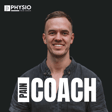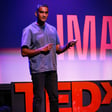
Dr. Howard Luks: The Surgeon Who Says We Do Too Much Surgery
“To say that many surgeries we do shouldn’t be done is a bold statement”—and today’s guest stands firmly behind it. In this episode of Pain Coach, we’re joined by Dr. Howard Luks, a leading orthopaedic surgeon specialising in shoulders and knees. Dr. Luks brings decades of clinical experience and personal insight to a conversation that challenges conventional thinking around pain, aging, and the role of surgery.
Dr. Luks understands firsthand what it means to move through pain. He shares how his own journey helped him reevaluate long-held medical advice—like bed rest for back pain—and shaped his belief that movement is not only safe but essential for long-term relief and recovery.
This episode dives into how physical activity, not inactivity, fosters healing and resilience. We explore the disconnect between imaging findings and actual pain, the link between metabolic health and joint degeneration, and why fear-avoidant behaviour often does more harm than good. Dr. Luks also explains why surgery isn’t the quick fix many believe it to be—and how empowering patients with the right education can change lives.
If you’re navigating persistent pain or questioning the next steps in your care, this episode offers both hope and clarity from a voice of experience and reason.
RESOURCES:
- Dr. Luks' Website
- Lachlan's Pain Relief App
- Follow Lachlan on LinkedIn and Instagram
- Book a Clarity Call with Lachlan
KEY TIMESTAMPS:
1:10 – Introduction to Dr. Howard Luks and his background
3:00 – Living with chronic back pain: personal insights
6:40 – The link between metabolic health and joint pain
8:30 – Movement as medicine: The science behind pain relief
14:00 – Myths vs. real lifestyle interventions
16:20 - Lachlan's pain relief app
19:25 – Gut health and joint pain
26:35 – Should we run with arthritis?
32:00 – When surgery is necessary—and when it’s not
36:39 – Joint replacement decisions
46:00 – MRIs, joint abnormalities, and pain perception
54:00 – Longevity Simplified: Tips for those in chronic pain
1:00:00 – Final thoughts: There is hope—and help
DISCLAIMER:
This podcast is for educational purposes only. The views expressed in this podcast do not constitute medical advice and are general in nature. You should obtain specific advice from a qualified health professional before acting on any of the information within this podcast.









